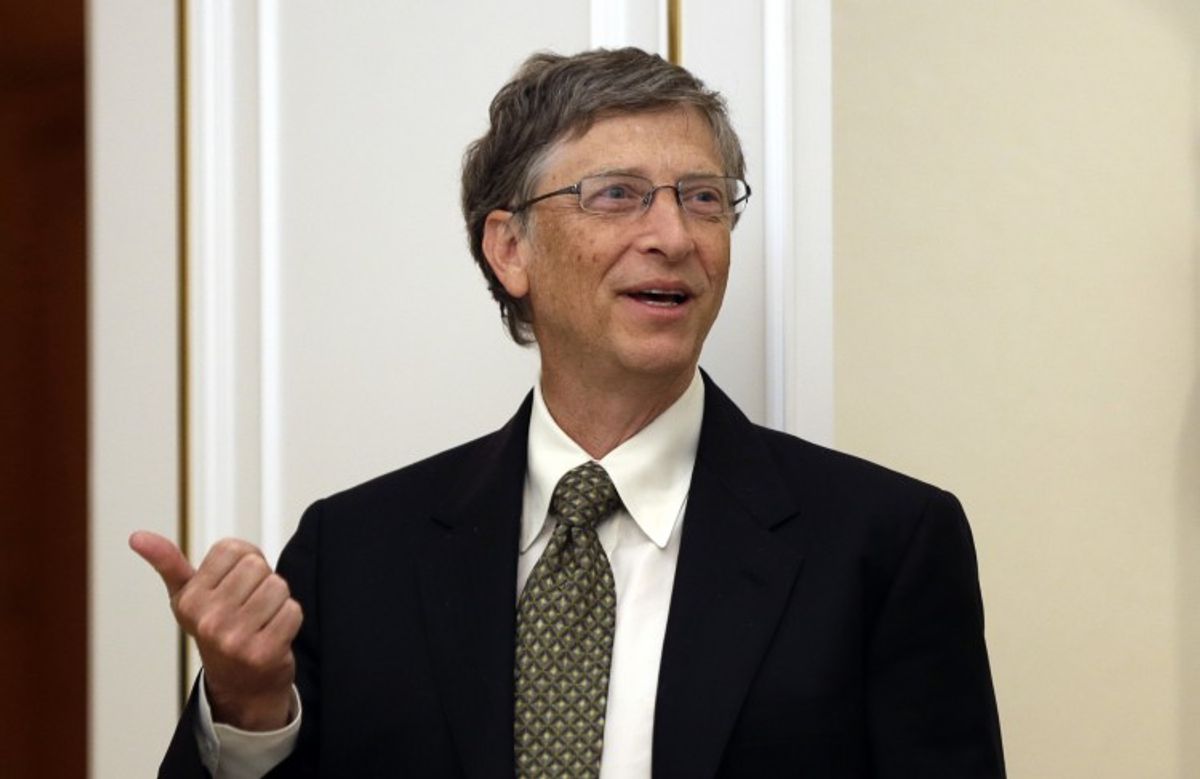The Microsoft founder is back at the company in an adversarial role and returns to his status as wealthiest man. He spoke with Rolling Stone in an extraordinarily fascinating Q&A that touched on everything from inequality to privacy and even the sale of WhatsApp:
1) On inequality being one of the biggest issues of our time Gates told Rolling Stone:
"In general, on taxation-type things, you'd think of me as a Democrat. That is, when tax rates are below, say, 50 percent, I believe there often is room for additional taxation. And I've been very upfront on the need to increase estate taxes. Particularly given the medical obligations that the state is taking on and the costs that those have over time. You can't have a rigid view that all new taxes are evil. Yes, they have negative effects, but I'm like Krugman in that if you expect the state to do these things, they are going to cost money."
2) However when it comes to government aid programs, Gates sees room for improvement:
"The way we help the poor out today [is also a problem]. You have Section 8 housing, food stamps, fuel programs, very complex medical programs. It's all high-overhead, capricious, not well-designed. Its ability to distinguish between somebody who has family that could take care of them versus someone who's really out on their own is not very good, either. It's a totally gameable system – not everybody games it, but lots of people do."
3) For the most part Gates thinks the U.S. government is doing OK -- minus the gridlock:
"Not cynicism. You have to have a certain realism that government is a pretty blunt instrument and without the constant attention of highly qualified people with the right metrics, it will fall into not doing things very well. The U.S. government in general is one of the better governments in the world. It's the best in many, many respects. Lack of corruption, for instance, and a reasonable justice system....If I could wave a wand and fix one thing, it'd be political deadlock, the education system or health care costs. One of those three, I don't know which."
4) Bill Gates has no sympathy for Edward Snowden:
"I think he broke the law, so I certainly wouldn't characterize him as a hero. If he wanted to raise the issues and stay in the country and engage in civil disobedience or something of that kind, or if he had been careful in terms of what he had released, then it would fit more of the model of 'OK, I'm really trying to improve things.' You won't find much admiration from me."
5) In terms of the government surveilling your data, Gates thinks we're asking the wrong questions:
"There's always been a lot of information about your activities. Every phone number you dial, every credit-card charge you make. It's long since passed that a typical person doesn't leave footprints. But we need explicit rules. If you were in a divorce lawsuit 20 years ago, is that a public document on the Web that a nosy neighbor should be able to pull up with a Bing or Google search? When I apply for a job, should my speeding tickets be available? Well, I'm a bus driver, how about in that case? And society does have an overriding interest in some activities, like, "Am I gathering nuclear-weapons plans, and am I going to kill millions of people?" If we think there's an increasing chance of that, who do you trust? I actually wish we were having more intense debates about these things."
6) Immigration and innovation? Are our laws stopping things up, Gates says yes and no:
"Yes, the U.S. immigration laws are bad – really, really bad. I'd say treatment of immigrants is one of the greatest injustices done in our government's name. Well, our bad education system might top it – but immigration is pretty insane. You've got 12 million people living in fear of arbitrary things that can happen to them. But you can't argue that all innovation has seized up because of the problem – I'm sorry. Innovation in California is at its absolute peak right now. Sure, half of the companies are silly, and you know two-thirds of them are going to go bankrupt, but the dozen or so ideas that emerge out of that are going to be really important."
7) Gates also sheds some light on the $19 billion sale of WhatsApp,
"It means that Mark Zuckerberg wants Facebook to be the next Facebook. Mark has the credibility to say, "I'm going to spend $19 billion to buy something that has essentially no revenue model." I think his aggressiveness is wise – although the price is higher than I would have expected. It shows that user bases are extremely valuable. It's software; it can morph into a broad set of things – once you're set up communicating with somebody, you're not just going to do text. You're going to do photos, you're going to share documents, you're going to play games together....Yeah, yeah. Microsoft was willing to buy it, too. . . . I don't know if it was for $19 billion, but the company's extremely valuable."

Shares